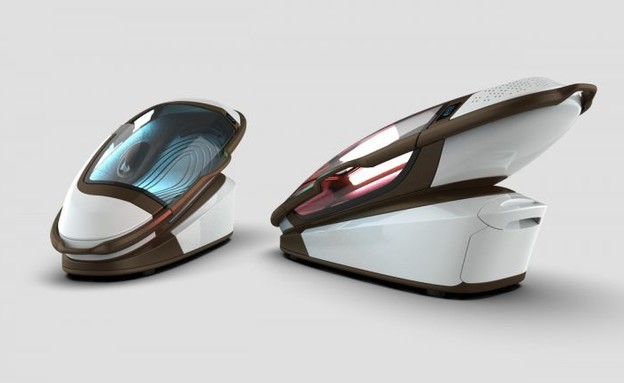The capsule was approved in Geneva and will take effect in 2022, but is already causing controversy in the country. • Dr. Philip Nietzsche, who made the machine, said: To obtain “• On the other hand, Dr. Stephen Duckworth, who supports euthanasia, claims:” Can not support it ”
Storm in Geneva: Switzerland has approved the use of the suicide capsule prepared “Sarko”, short for sarcophagus, which is supposed to help euthanasia and operate it independently. Dr Philip Nietzsche, who made the machine in the Netherlands, said at the launch: “The advantage for users is that they do not need to get any approval, they do not need a special doctor and patients do not have to get drugs that are difficult to obtain.” And will replace it with a solitary virtual reality experience. ”
Switzerland is one of the countries that allows euthanasia and there are a number of organizations that even help people who choose to end their lives as a result of dealing with incurable diseases. Those same organizations rely on a law that states that the final procedure can be assisted, if a person helps after dying of altruistic motives, he does not break the law, now, a Dutch scientist has developed a capsule in which no other person’s intervention is needed.
https://www.youtube.com/watch?v=oCFwk5FB7d0
“Carko” machines – a capsule printed on a 3D printer and intended for use in assisted suicide – have undergone legal review and can now operate in Switzerland, the Swiss Info website reports that the capsule should be ready for operation in Switzerland as early as 2022. Today the dying must swallow or inject into the body poison, sodium pentobarbital liquid. The capsule developers say that their machine allows death without the use of toxic substances and without external control.
The capsule itself is portable so it can be placed wherever the dying person chooses. Nietzsche explained the benefits of development: “The advantage for those who use it is that they do not need to get any approval, do not need any special doctor to insert a needle, they do not need to obtain drugs that are difficult to obtain. After activating the capsule its inner part quickly releases nitrogen “Which causes a person to lose consciousness and eventually die without suffocation or panic.”
The capsule has been controversial even before it began operating, among proponents of euthanasia. Dr Stephen Duckworth, founder and CEO of Disability Matters Global, wrote to the British newspaper The Independent: .
The Netherlands, Switzerland, Belgium, Luxembourg, Canada and a number of states in the United States allow suicide or euthanasia, each of which has different rules for approval and the option of choosing a person to end his or her life. According to the British Guardian, almost all countries that allow suicide, require basic conditions – that the people who seek to end their lives, will suffer from an incurable or terminal illness that can not be cured and causes them suffering.
Switzerland has no laws prohibiting suicide, but assisting a suicide bomber, if done out of selfish motives, is considered a crime in the country. In the Netherlands, euthanasia can be requested by any person aged 12 and over who has experienced “unbearable suffering with no chance of recovery”, but parental consent is required if the child is under 16 years of age.
Jerouan Recort, chairman of the regional committees for euthanasia in the Netherlands, said that the “vast majority” of euthanasia cases in the country are elderly people suffering from a serious illness. By 2020, the number of euthanasia in the Netherlands reached a peak with 6,938 people choosing to end their lives. Of 9% compared to the previous year. According to reports from the Netherlands “more and more generations see euthanasia as a solution to unbearable suffering,” said Record. “But the thought that euthanasia is an option for a case of hopeless suffering is very reassuring.”
